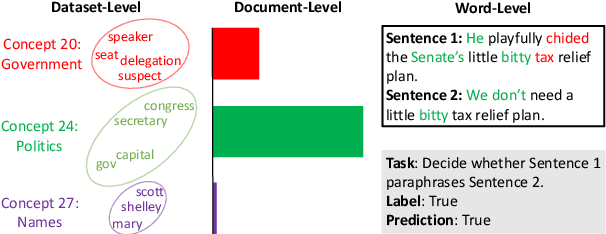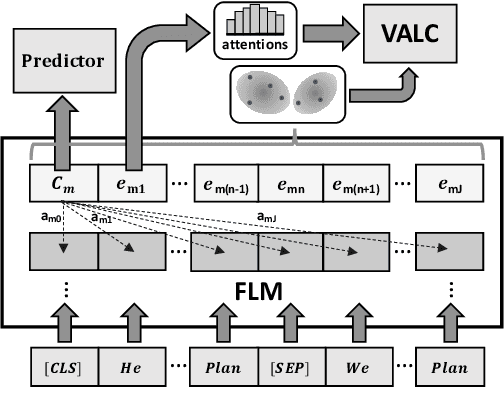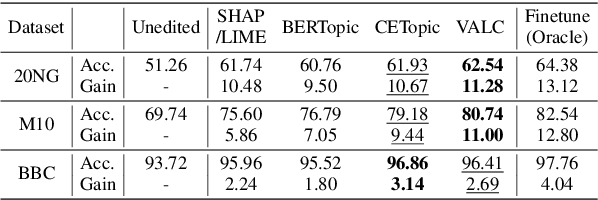Variational Language Concepts for Interpreting Foundation Language Models
Paper and Code
Oct 04, 2024



Foundation Language Models (FLMs) such as BERT and its variants have achieved remarkable success in natural language processing. To date, the interpretability of FLMs has primarily relied on the attention weights in their self-attention layers. However, these attention weights only provide word-level interpretations, failing to capture higher-level structures, and are therefore lacking in readability and intuitiveness. To address this challenge, we first provide a formal definition of conceptual interpretation and then propose a variational Bayesian framework, dubbed VAriational Language Concept (VALC), to go beyond word-level interpretations and provide concept-level interpretations. Our theoretical analysis shows that our VALC finds the optimal language concepts to interpret FLM predictions. Empirical results on several real-world datasets show that our method can successfully provide conceptual interpretation for FLMs.
 Add to Chrome
Add to Chrome Add to Firefox
Add to Firefox Add to Edge
Add to Edge